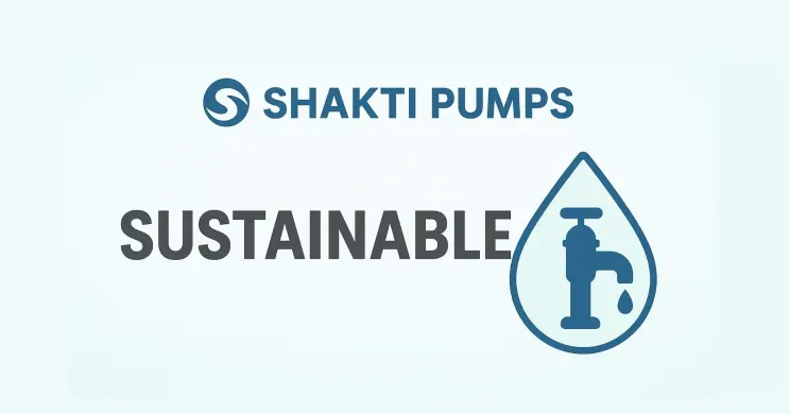
15 Days Price Change

 Sudarshan
Sudarshan

Read Business Not Stock Prices Co-Founder of a financial platform focused on equity resea... Read Business Not Stock Prices Co-Founder of a financial platform focused on equity research which has overall network of 50k investors. Have exposed multiple corporate governance issues in financial market encompassing from smallcaps to largecaps. Everything about some stocks, something about every stock Read more
Summary
India's Growth Story: Positive Signals
Experts like Mark Mobius predict a significant shift of investment flows from China to India. Despite some caution, foreign and domestic investors are net buyers in India. India's foreign exchange reserves have surged, and increased weightage in prominent indices, such as the MSCI Emerging Markets Index, reflects growing investor confidence. India's economic resilience, coupled with positive trends in trade dynamics, inflation, and domestic demand, positions it favorably in the emerging markets.
In the current month, the equity markets have been notably impacted by the latest quarterly earnings reports from corporations, the festive season in India, and global economic trends. Global oil benchmarks, particularly Brent crude, have also been under scrutiny. Despite prevailing geopolitical issues, their impact on market trends has been limited. The enduring strength of global markets remains a crucial factor in sustaining the current positive market momentum.
Indian stock markets have witnessed a 7% increase in 2023, outperforming other Asian and Emerging Market countries. The Indian Volatility Index (VIX), which gauges expected price swings in stocks, has decreased by approximately 25% this year, approaching historical lows. With upcoming elections in both India and the US next year, market movements in India will likely be influenced by the election outcomes.
The festive season has contributed to economic growth in the last couple of months. In October, there was a significant year-over-year increase of 13.4% in GST collections, reaching Rs 1.72 trillion. This robust growth is attributed to increased consumption during the festive season and enhanced compliance. Passenger vehicle sales saw a substantial rise of 16.7% year-over-year in October, compared to 5.1% in the previous month, driven by festive demand. Additionally, sales of 2-3 wheelers experienced a notable increase of 17.2%, contrasting with a mere 2% growth in September. October also marked a record high in the generation of e-way bills, reaching nearly 10 crores, signifying a 30.5% annual growth. This surge reflects heightened movement of goods, boosted by festive activities and the upcoming wedding season.
The focus shifts to understanding the flow of foreign portfolio investors (FPIs) and foreign institutional capital in the Indian markets.
In the second half of 2023, Foreign Institutional Investors (FIIs) have displayed a trend of selective sector investment in the Indian equity market. The latest fortnight (1st November to 15th November) saw a net outflow of $169 million, marking the fifth consecutive period of withdrawal. Despite this, the year 2023 has seen a substantial net inflow totaling $11.5 billion.
Some sectors experienced minor outflows, including Energy, Capital Goods, and Consumer Durables & Apparel. Let's delve into specific sector-wise performances and foreign investor flows:
The Commercial and Professional Services sector experienced the largest inflow in the recent fortnight, leading with a $612 million inflow. This sector has consistently received FII investments for the fourth consecutive fortnight, benefiting companies like CAMS, which saw a 25% increase in November.
The Healthcare sector witnessed inflows of $136 million, contrasting with a considerable outflow in the preceding fortnight.
The Consumer Services sector, encompassing hospitality and leisure, has seen a steady flow of FII capital since May 2023. FIIs increased their stake from 2.3% in April to 3% in November, with an inflow of $101 million.
Sectors like Automobiles & Components, Financial Services, and Utilities faced the highest outflows at $207 million, $188 million, and $171 million, respectively. This marks the third consecutive period of outflow.
Significant outflows were also noted in the Software & Services and FMCG sectors, continuing a negative trend since the start of October.
The trends highlight FII confidence in sectors tied to India's economic growth, such as Financial Services and Capital Goods. Latest data indicates varying FII stances relative to a global benchmark:
The data also indicates a mixed sentiment among FIIs, with a preference towards Commercial and Professional Services and caution in sectors like Automobiles & Components.
Financial Services emerged as the favored sector with the highest inflow over the last 12 months. Despite substantial inflows in the last 6 months, FIIs' average weight for the sector has hovered around 33%.
Capital Goods and Automobiles & Components also attracted considerable FII funds, seeing inflows of around $3,369 million and $1,499 million in the last 6 months.
On the other hand, the Energy and Software & Services sectors have experienced substantial outflows, with $3,029 million and $2,066 million, respectively. However, both have shown significant improvement, as the outflow in the last 6 months has been considerably lower.
Materials experienced a notable outflow in the last 6 months, despite a positive average weight.
Commercial and Professional Services observed a moderate inflow in the last 6 months.
Overall, there has been a total investment inflow from FIIs as of November 2023 of $13.7 billion for the last 12 months and $10.3 billion for the last 6 months. As of September 2023, foreign investors had infused over $16 billion into Indian stocks, a substantial amount and the most significant net purchase in 3 years. This robust inflow contrasted sharply with the global selloff in August, where Indian markets were a notable exception as investors pulled back from almost all other Asian emerging markets. Several factors contributed to this:
While onshore Chinese stocks suffered record outflows, driven by unmet expectations for market-boosting measures and lingering concerns over a real estate crisis, India's market nearly tripled its value since the March 2020 equities low. It now ranks as the world's fifth-largest stock market, outpacing the US market, which has seen its capitalization roughly double over the same period.
India faces inflationary pressures, with rising crude oil prices threatening to amplify the situation. The central bank is grappling with price surges in daily essentials, while the Indian rupee is near an all-time low, posing challenges for an export-driven economy.
The upcoming Indian general elections in 2024 are another variable that strategists believe could significantly impact the markets. Furthermore, India's long-term growth trajectory is contingent on its ability to enhance infrastructure, education, and job creation for its young workforce, especially in the face of challenges posed by the increasing use of artificial intelligence.
Despite the inflow of foreign capital, some investors remain cautious. Some investors find that India needs to invest years worth of infrastructure and private-sector development to even come close to rivalling China’s investment portfolios. Does the retreat from Chinese investments automatically mean increased investment in India? Especially when we look at the disparity in the number of investable assets between India & China.
In the first 7 months of 2023, over 75% of foreign investment in China's stock market has been withdrawn, totaling more than $25 billion. This is a significant shift from the record buying that happened in January 2023, driven by expectations of economic recovery post the "zero-Covid" policy. However, concerns over the liquidity crisis in the real estate sector, underwhelming growth, and lack of conviction.
In the first 7 months of 2023, over 75% of foreign investment in China's stock market has been withdrawn, totaling more than $25 billion. This is a significant shift from the record buying that happened in January 2023, driven by expectations of economic recovery post the "zero-Covid" policy. However, concerns over the liquidity crisis in the real estate sector, underwhelming growth, and lack of conviction from the Chinese government to take stringent fiscal & monetary policy measures to boost the economy have led to this mass sell-off. In essence, foreign investors want the Chinese economy & market to be competitive - they want their investment to generate alpha - if they aren’t, investors will withdraw and invest their capital in places that can give them better returns.
Foreign investors' net inflows to China's market have decreased by 77% since early August, reaching Rmb54.7bn. The CSI 300 index, which includes stocks listed in Shanghai and Shenzhen, has fallen over 11% in dollar terms this year. In contrast, markets in Japan, South Korea, and India have seen gains of 8 to 10%.
Financial institutions are now favoring markets in India and South Korea, with net inflows of $12.3bn and $6.4bn, respectively. Since 2019, this will be the first year that South Korea sees net foreign inflows. This is a significant shift from the previous trend of investing in Chinese stocks.
Analysts from Goldman Sachs predict a 17% rise in the CSI 300 by the end of 2024, driven by higher earnings and valuations of Chinese companies. Morgan Stanley strategists forecast a 7.5% gain for Chinese equities in the next 12 months but caution that further investment shifts away from China are possible if policymakers do not actively support growth.
Experts such as Mark Mobius believe a significant shift in investment flows towards India is inevitable as China is experiencing a decline in foreign direct investments (FDI). There are increasing investment inflows into India, from both portfolio and private investments. Foreign investors have remained net buyers over the last 2 trading sessions, buying up stocks worth Rs.2,626.20 cr according to NSE data. Domestic investors are also net buyers and have bought around Rs. 134.5 cr in the same period. According to NSDL data, foreign investors have bought around Rs.96,349 cr Indian stocks in 2023.
Mark Mobius is of the opinion that India is set to receive funds that would typically be directed towards China. China's FDI inflows have decreased by 9.4% year-on-year to $136.4 billion in the first 10 months, according to the country’s commerce ministry.
In contrast, India’s foreign direct investment has increased significantly over the last 10-20 years. And despite foreign institutional investors being net sellers in October and November in India, the Indian economy has attracted over $10-$13 billion in FPI investments in 2023.
Bullishness towards the Indian economy and the attractiveness of the Indian stock markets comes from our diversity, demographic advantages, creativity, young population, and fast technological adoption. Foreign investors are seeing India’s growth story as an attractive investment option with high ROIs (return on investment).
India's foreign exchange reserves have also seen a significant surge, increasing by $5.077 billion to a total of $595.397 billion, according to the latest data from RBI. The boost in reserves is attributed to various factors, such as robust foreign direct investment (FDI) inflows, steady foreign portfolio investments (FPI), and a positive balance of payments. Additionally, increased remittances from the Indian diaspora and favorable exchange rate trends have contributed to this growth.
Here’s a breakdown of various components of the reserves: Foreign Currency Assets (FCAs) increased by $4.39 billion to $526.39 billion, the Special Drawing Rights (SDRs) with the IMF rose by $120 million to $18.13 billion, and the Reserve Position in the IMF increased by $42 million to $4.83 billion. The gold reserves also saw an increase of $527 million, reaching $46.04 billion.
Adequate reserves will allow RBI to intervene in the foreign exchange market to stabilize the currency and reduce volatility. A comfortable level of foreign exchange reserves is crucial for India, particularly in meeting import requirements for essential commodities like oil and strategic imports. Such reserves help in mitigating the impact of external shocks and contribute to macroeconomic stability.
India's weightage on the MSCI Emerging Markets (EM) Index will increase to 16.3% from the current 15.88%, following the inclusion of 9 new stocks from 30th November onwards. India will have an all-time high of 131 stocks on the EM Index - the number of Indian stocks tracked by the index has doubled in just 4 years.
Through 31 October of this year, India generated net returns of 4.75%, compared to a negative 2.14% return by the MSCI EM - which means India has outperformed the EM Index. Over a longer period of 10 years, India's annualized net returns stand at 8.33%, significantly higher than the MSCI EM's annualized returns of 1.19%. This strong performance places India second only to China in the EM index and ahead of other major economies like Taiwan, South Korea, and Brazil.
Increased representation of Indian stocks in the MSCI EM Index & other such inclusions in well-tracked indices, such as JP Morgan’s inclusion of Indian government bonds in its Emerging Market Bond Index, have several implications.
In terms of overall Foreign Portfolio Investment (FPI), the increase in India's weightage in the MSCI EM Index will primarily benefit passive trackers rather than active fund managers. While this does not necessarily mean an overall increase in foreign fund flows, it is certainly a positive signal for the market.
Morgan Stanley recently upgraded India to the most preferred emerging market. India's performance in comparison to the MSCI Emerging Markets (EM) Index has been notably strong, especially from early 2021 until October 2022, where it outperformed the index by 45.5% in USD terms. This trend of outperformance is expected to continue, driven by several positive factors.
Key among these factors is India's relative earnings per share (EPS) breakout versus the EM, coupled with a lower correlation/revenue exposure to the US and China.
Recent high-frequency trends further bolster the bullish outlook on India. Inflation concerns, which have been a global issue, are showing signs of easing in India.
September Consumer Price Index (CPI) moderated to 5%, and the core CPI slowed further to 4.6%. This reduction in inflationary pressures suggests a more stable economic environment, potentially reducing the need for abrupt monetary policy changes
Conclusion:
India's robust economic indicators, improving trade dynamics, and positive growth forecasts contribute to a bullish outlook. The increased representation in global indices signifies growing confidence among foreign investors. FIIs' strategic shift towards growth sectors and favorable weightages highlight the long-term potential. As global investors withdraw from Chinese stocks, India emerges as a promising destination. The sustained inflow of foreign capital, coupled with structural reforms, positions India favorably in the global investment landscape, signaling a compelling India growth story.


























Independent Research Powered By - Actionable data



Looking to buy unlisted shares or need guidance on the investment process? Our expert Private Equity Advisors are here to assist you with accurate information, real-time pricing, and seamless execution.
Want to sell unlisted shares, liquidate your ESOPs, or understand the step-by-step process of liquidation? Connect with our Buying Team for smooth coordination, quick evaluations, and end-to-end support.
Planning to build or grow your portfolio? For Mutual Fund investments, PMS solutions, tailored portfolio creation, and overall wealth management, our dedicated Wealth Team is ready to guide you.